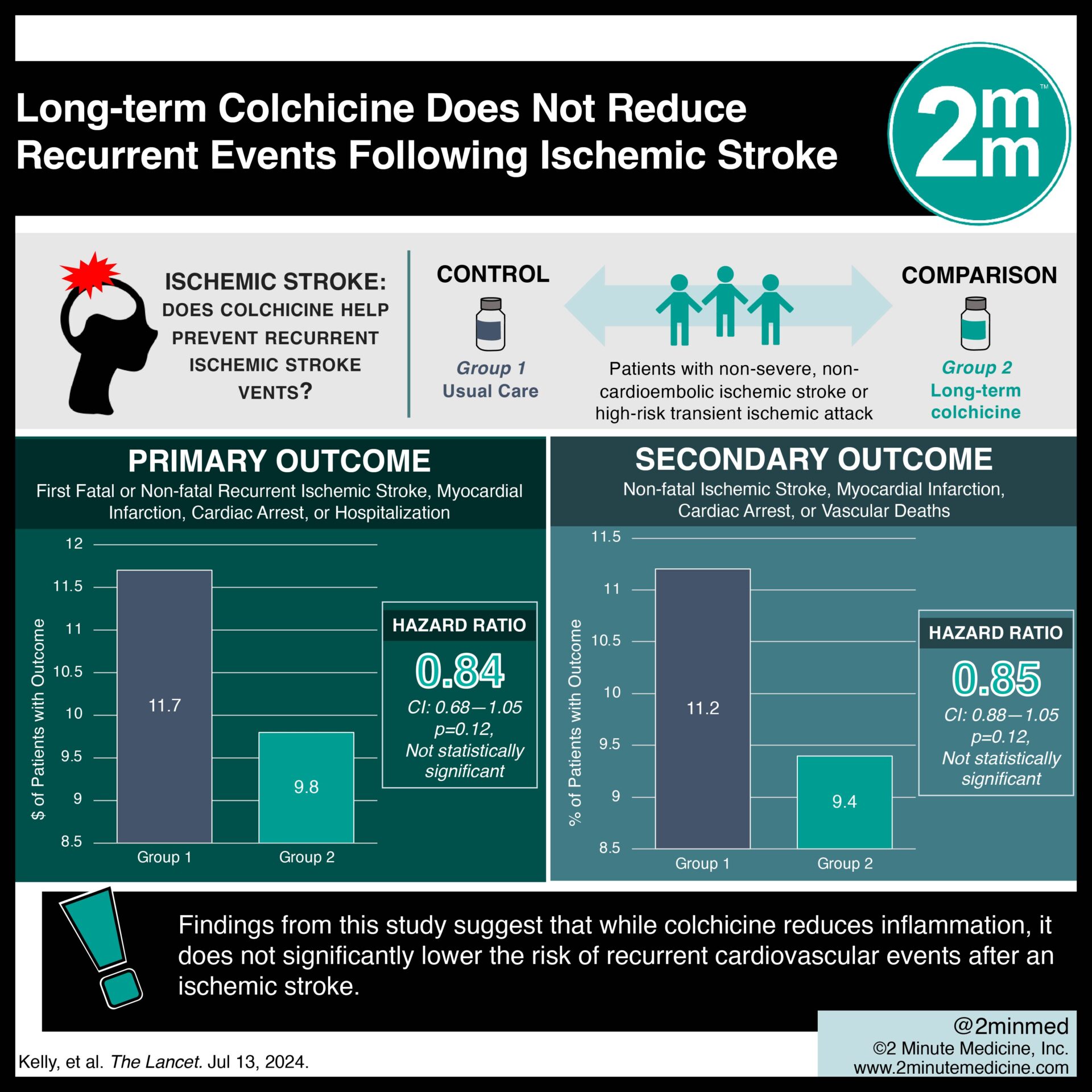#VisualAbstract: Long-term Colchicine Does Not Reduce Recurrent Events Following Ischemic Stroke
1. Incidence of recurrent ischemic stroke, myocardial infarction, cardiac arrest, and hospitalization was not statistically significant between both groups.
2. Patients receiving colchicine had lower CRP levels than those assigned to usual care.
Evidence Rating Level: 1 (Excellent)
Study Rundown: Anti-inflammatory therapy with long-term colchicine has been shown to prevent vascular recurrence in coronary artery disease. However, a paucity of data exists around the effect of colchicine on ischemic stroke. This randomized controlled trial aimed to determine whether long-term colchicine could reduce recurrent events after non-cardioembolic ischemic stroke. The primary outcome of this study was a composite of first fatal or non-fatal recurrent ischemic stroke, myocardial infarction, cardiac arrest, or hospitalization for unstable angina, while the key secondary outcome was a change in C-reactive protein (CRP) level. According to study results, no significant difference was noted for patients receiving colchicine versus those in standard care regarding the rate of recurrent events. Although this study was well done, it was limited by early termination which may affect the validity of data collected.
Click to read the study in The Lancet
In-depth [randomized controlled trial]: Between Dec 19, 2016, and Nov 21, 2022, 3154 patients were screened for eligibility across 144 hospitals in 13 European countries and Canada. Included were patients with non-severe, non-cardioembolic ischemic stroke or high-risk transient ischemic attack. Altogether, 3137 patients (1565 in colchicine and 1572 in usual care) were included in the per-protocol analysis. The primary outcome of recurrent cardiovascular events and hospitalization for unstable angina was lower in the colchicine group compared to usual care (9.8% vs. 11.7%, hazard ratio 0.84, 95% confidence interval [CI] 0.68-1.05), although it was not statistically significant (p=0.12). However, the secondary outcome of reduced CRP levels was observed in patients treated with colchicine at 28 days and at 1, 2, and 3 years (p<0.05 for all time points). Findings from this study suggest that while colchicine reduces inflammation, it does not significantly lower the risk of recurrent cardiovascular events after an ischemic stroke.
Image: PD
©2024 2 Minute Medicine, Inc. All rights reserved. No works may be reproduced without expressed written consent from 2 Minute Medicine, Inc. Inquire about licensing here. No article should be construed as medical advice and is not intended as such by the authors or by 2 Minute Medicine, Inc.








